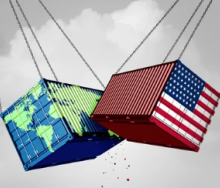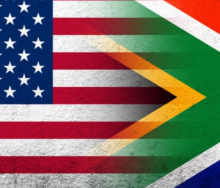Zambia will have to re-open its Nakonde border with Tanzania - the only access point it has to the Port of Dar es Salaam - because of the crucial role that the “Dar Corridor” plays in its landlocked economy, an anonymous source operating from Lusaka has told Freight News.
This after the government of President Edgar Lungu announced on Sunday that it had closed Nakonde because of a spike in coronavirus infections. “Nakonde takes 70% of Zambia’s imports and exports, including fuels,” the transporter said.
“We honestly cannot keep that border closed.”
He added that it didn’t help that Tanzania appeared to be in denial about the Covid-19 virus.
Following Lungu’s announcement last week that Zambia was relaxing certain lockdown regulations to stimulate the country’s ailing economy, testing was stepped up in key areas such as Nakonde, resulting in a slew of Covid-19 confirmations.
Of the 85 new cases that Zambia recorded on Sunday, 76 were in Nakonde, fuelling fears that the spread of the virus had been exacerbated by the high volume of traffic shared with Tanzania which reportedly has a laissez fair approach to curbing Covid-19.
It has also since emerged that of the 76 confirmed cases in Nakonde, 13 were sex workers.
According to news shared by the Federation of East and Southern African Road Transport Associations (Fesarta), they were “very cooperative and have provided details of their clients”.
In the absence of more information from Zambian authorities, road hauliers using the Dar Corridor “will have to wait and see”, the source said.
“There is no clear direction from above and this means that people on the ground are left to their own devices and speculation.”
Responding to a report Freight News ran yesterday about the closure of Nakonde (https://www.freightnews.co.za/article/zambia-tanzanias-dar-corridor-shut-corona-cases-spike), Africa House director Duncan Bonnett said it was to be expected.
“I think we’ll be seeing a lot more of this in the coming months as countries wrestle with spikes in cases.
“As countries work towards keeping economies and communities healthy, the situation will remain fluid and will require companies to constantly monitor how it impacts on their business – both negatively and positively.”













